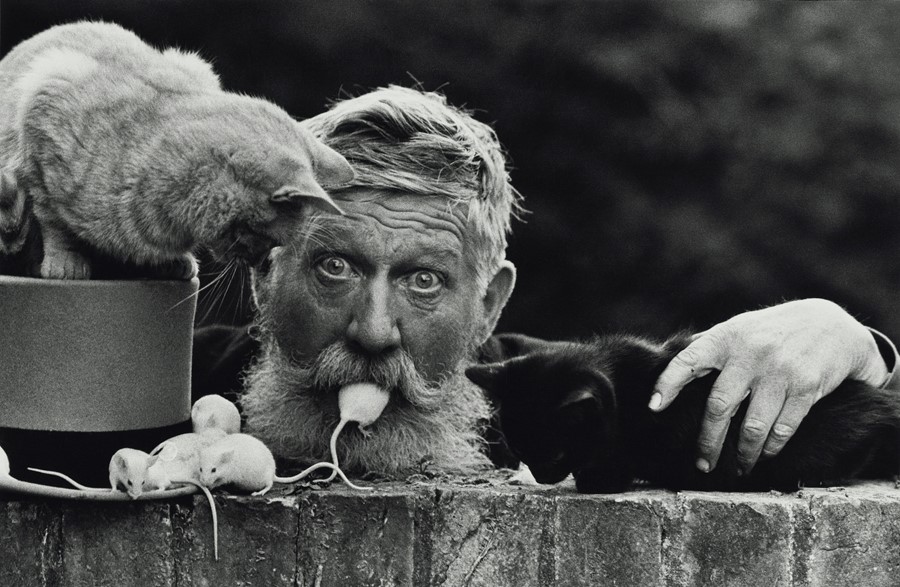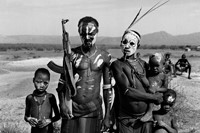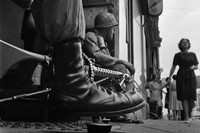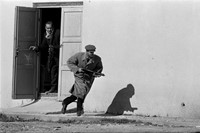Hamiltons Gallery presents a virtual exhibition which looks back on the career of legendary photographer Don McCullin
This article is published as part of our #CultureIsNotCancelled campaign:
“I do not want people to walk past one of my pictures without realising. They’re meant to stop you and make you look and make you feel,” photographer Don McCullin told Jo-Ann Furniss for the 30th issue of Another Man, which Furniss guest-edited. McCullin has been photographing since 1959, and he has often chosen to depict difficult subjects – poverty, wars, and conflicts around the world – with searing honesty, plumbing the emotional depths of the scenario to create striking images in his signature rich black and white. “He’s an incredible man and, in my opinion, the world’s greatest living photographer,” Furniss writes. Hamiltons Gallery, which has represented McCullin for 30 years, has this week launched an online viewing room dedicated to his extraordinary career.
The exhibition features one of the photographs that launched McCullin’s career, from a series taken at Checkpoint Charlie during the first year of the Berlin Wall, in 1961. The photograph – taken from the ground as McCullin placed his camera on the floor by the boot and gun of an officer – was picked up by The Observer, and led to a contract for the newspaper. “The beginning of me not only learning about photography but I had my foot on the first rung of the great climb that’s been going on for the last 60 years,” McCullin describes in a video accompanying the exhibition, in which he explains the stories behind some of his most enduring photographs.
Having dedicated much of his career to documenting wars and conflicts across the world – from the Vietnam War to the Troubles in Northern Ireland – McCullin’s extensive archive shines a light on stories of human strength, resistance and suffering. The photographer described to Furniss feeling a duty to capturing these stories: “You’re there to be concerned. If you’re not concerned you shouldn’t be there. I always went to these places with a mission to try and show injustice, cruelty, poverty, pain and suffering. I was carrying a huge rucksack of causes which you could say were not my causes but they were the cloak of dignity that I had to work under.”
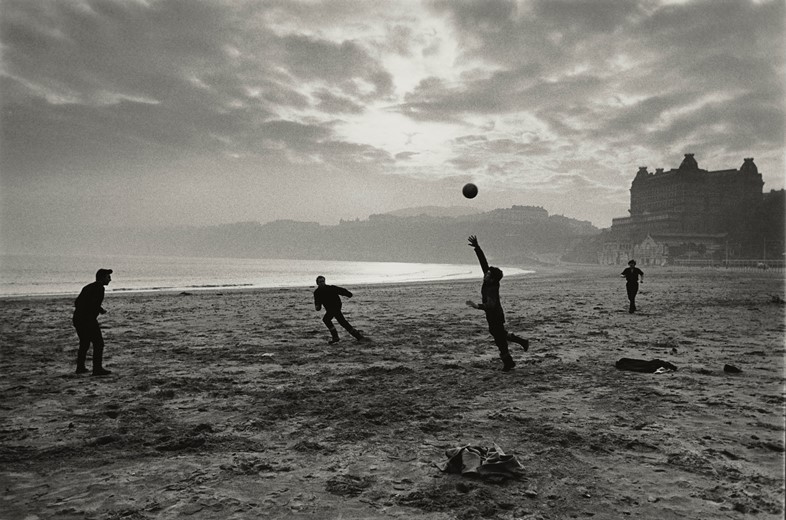
McCullin’s photographs of England, its people and landscapes, have proven especially resonant over the decades. Much of the Tate Britain’s recent retrospective on McCullin – staged last year and due to be held at Tate Liverpool later this year – highlighted how he has documented his country, and “the humour, eccentricity and resilience of British people”. From the irreverence of a man McCullin encountered selling ice cream on the side of a road in Cambridge in the early 1970s (Snowy, part of the Hamiltons Gallery show and published here exclusively on AnOthermag.com) to fisherman playing football on a Yorkshire beach in the 60s, the photographer’s long-held interest in stories and characters, and how he can communicate them through imagery, is evident.
In recent decades, the landscapes around his home in Somerset have become regular subjects for McCullin. Atmospheric and quietly beautiful, McCullin’s landscapes are charged in a different way to his portraits and scenes of conflict. After a life spent ingratiating himself in often dangerous, harrowing situations, it was the calm of landscapes that McCullin found he needed. “I came to Somerset as a child at the age of five, because I was evacuated during the Blitz,” he explains in Another Man, citing two landscapes as examples of his most personally significant photographs. “Years later I walked into the house I live in now in Somerset on a cloudless May day, and I said to the woman I was with, ‘I’m going to buy this house’ … It has been my spiritual home, my sanctuary. It’s as if I was born here … I started photographing the landscape in the early 90s. The landscape became my shrink, and it cured me.”
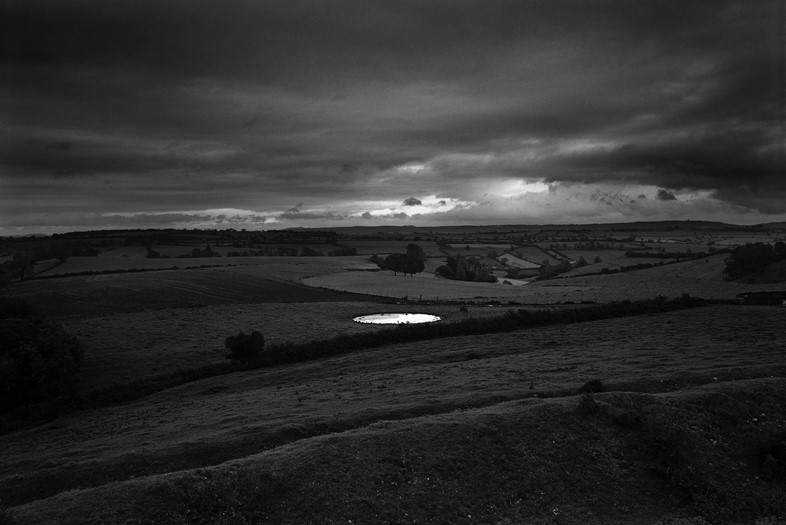
Hamiltons Gallery’s viewing room dedicated to Don McCullin is online until June 1, 2020.
